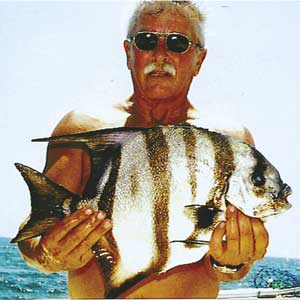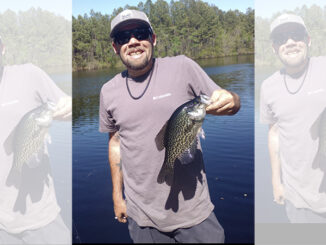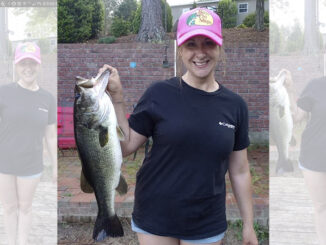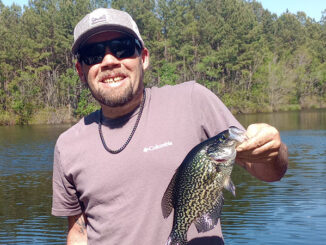
One type of reef fish, often called a ‘bluegill on steroids’” is becoming more popular among South Carlina’s coastal anglers.
Too lazy to get up at the crack of dawn to go fishing? Think you need to go to the Gulf Stream to catch the hardest-fighting fish in the ocean?
Well, you’re in luck. Within a few miles of South Carolina’s shoreline resides a powerful, plentiful and tasty saltwater sportfish.
With a little bit of know-how, anybody can wrestle with this voracious fighter, the Atlantic spadefish.
Sometimes referred to as “bluegills on steroids,” spadefish are one of the hardest-fighting fish in the ocean, compared pound-for-pound to other fish of similar size.
Spadefish are commonly overlooked as a recreational opportunity but offer a sporting battle and fine table fare. Once anglers close the gap between a rod and a chunky spadefish, that first fight will be a memorable one that most will seek to duplicate.
Don’t worry about waking up before daylight to chase this striped fighter. Although most marine and freshwater gamefish feed early in the morning or late in the afternoon, spadefish like it hot.
They become the most active from mid-morning to early afternoon and peak during mid-day. Slick calm days in July and August, when the weather seems to be more suited for drying tobacco than fishing, are the best conditions to catch spadefish.
Tactics for catching spadefish are different than those used for other kinds of fishing; in fact, fishing for spadefish is a totally new experience because of their preferred food and feeding periods. Most any fish in the ocean will engulf a live shrimp or live fish, but a spadefish may swim past shrimp or baitfish, looking for something else.
However, several special angling techniques will fill a fishbox with spades.
Spadefish are beautiful fish with black-and-white vertical stripes. Pretty enough to reside in an aquarium, they move gracefully through the water in large schools, feeding gently on soft and pliable foods. They appear, at first sight, to be a real pushover of a fish until they snag a hooked bait and turn into the Incredible Hulk. A hooked spade immediately flies into a violent rage.
Known for powerful runs with plenty of endurance , they fight all the way to the boat.
Spadefish are generally found at high-relief bottom areas from 3 to 50 miles offshore. The vertical structure they prefer usually will be an artificial reef or shipwreck with plenty of hiding places. Occasionally, they travel close to shore and frequent jetties at the mouths of inlets.
Spadefish travel in schools of 25 to 500 individual fish. In South Carolina, spadefish range from 1 to 2 pounds but in some instances will weigh nearly 20 pounds.
In July 2005, Stacey Nicholson of Augusta, Ga., caught the state-record spadefish off the coast of Beaufort, a fish that tipped the scales at 14 pounds, 1.8 ounces.
However, many times spadefish schools have much larger individuals. Smaller spades tend to be more aggressive and eat baits quicker than larger fish. Most observers expect a new state-record spadefish to be caught any day. But any spadefish weighing more than a couple of pounds will be a tough opponent for an angler. In fact, because they fight so hard, it’s not difficult to imagine why no one has boated a spadefish that totaled more than 14 pounds.
Spadefish eat a wide variety of plants and animals, including shrimp-like amphipods, jellyfish, polychaetes (worms), soft coral and plankton. Cannonball jellyfish, regularly referred to as “jelly balls,” and shrimp are the most common baits of choice for spade fishermen in the Carolinas. However, jelly balls are considered candy to spadefish.
Hanging out near vertical structure, spadefish are sometimes confused with sheepshead because of their “prisoner look” (the vertical black-and-white stripes). However, sheepshead are a little more elongated and have teeth that resemble sheep or horse teeth. Not to down play the powerful runs of a sheepshead, but a spadefish probably would win a tug of war with a sheepshead because of the species’ dogged endurance. Sheepshead will surrender to an angler much sooner than spadefish.
Fishing for spadefish is fairly easy but can be frustrating for novices.
Read more in the South Carolina Sportsman archives, and be sure to subscribe to ensure you don’t miss a single information-packed issue.
Digital issues are also available for download to computers and smartphones.





Be the first to comment